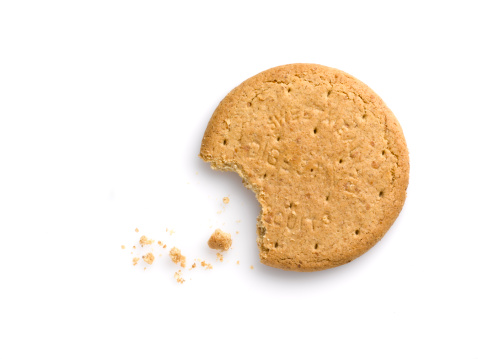
Sodium Bicarbonate or Baking Soda was used in the past (and still is today) as an antacid, used to settle stomach problems such as indigestion and heartburn. When the Digestive Biscuit was first invented in 1892 by a gentleman named Alexander Grant who worked for a company called McVitie and Price, they contained a large quantity of baking soda, as such they were believed to also aid in digestion and were dubbed Digestive Biscuits.
However, in order for baking soda to work as a digestive aid it was consumed after being dissolved in water. When the biscuits are baked it alters their chemical structure, they lose the carbon dioxide that provides the qualities that neutralise stomach acid and removes any antacid or digestive aiding properties that the baking soda added to the biscuit.
Although the name has remained the same, McVitie’s no longer makes any claim that the biscuit has any kind of health benefit in regards to digestion. In fact they are banned from being named “Digestive” in the USA, being named sweet-meal biscuits or Graham Crackers instead. While we have many different brands in the UK and sales of over 80 million packs a year, digestives are sold scarcely in the USA and if they are stocked they would be in the international section of large supermarkets with McVitie’s brand only.






Carbon dioxide creates a weak acid (Carbonic acid, H2CO3) and is definitely not an antacid.